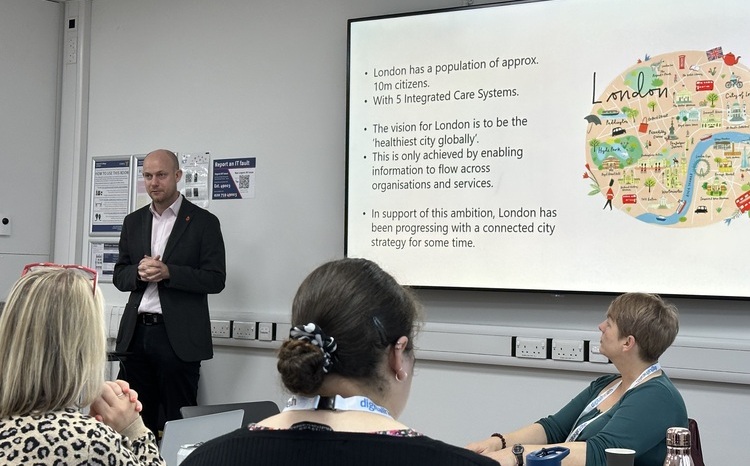NHS ICT spend set to hit £2.9bn
- 12 September 2007
The total spend on Information and Communications Technology in the NHS is set to hit £2.9bn in 2007/8 according to figures contained in a new report on NHS investment for the King’s Fund.
Our Future Health Secured, authored by ex-NatWest boss Sir Derek Wanless, states that ICT spending in the NHS, combining both local and central spend, is set to almost triple from an estimated figure of £1bn in 2002 to £2.9bn by the end of 2007/8.
"Actual ICT spending in England is estimated to have increased from £1bn in 2002/3 to £2.3bn in 2005/6. In 2006/7, the planned increase in ICT spending is set to rise by 25 per cent to just under £2.9bn," says the report quoting figures supplied by NHS Connecting for Health.
The King’s Fund report, which comes five years after Sir Derek published a review into future long term funding of the NHS, says that actual spending on ICT in the NHS was slower to pick up than originally envisaged, but has since exceeded the recommendations he made five years ago.
"The 2002 review noted that its ICT investment path would raise spending to more than 3 per cent of total NHS spending. However, since then the government has stated its intention is to increase ICT expenditure to 4 per cent of total NHS spending (Hansard 2004)."
Most of the growth in NHS ICT spend has come as a result of greatly increased spending from central government, says the report. "The relative contribution to total ICT spending from central government (as opposed to the local NHS) has been increasing since 2002/3. In that year only 18 per cent of total NHS ICT spend came from central government, but by 2006/7 the contribution by central government is expected to have risen to 45 per cent. Much of this change is driven by large increases in capital spending, predominantly funded by central government."
The NHS National Programme for IT (NPfIT) is identified as a major recipient of this additional investment, but the report notes that up to the end of March 2006, actual expenditure on the contracts let in 2003 and 2004 was lower than planned: "£654m (estimated outturn) compared with expected expenditure of £1,448m, reflecting the slow delivery of some systems".
The report concludes that the £12.4bn spending on the NPfIT over ten years up to 2013/14, projected by the National Audit Office in 2006, should be covered by the resources set out in the 2002 review.
In a major caveat, however, it notes: "The extent to which the NHS will benefit from these substantial investments remains unclear".
Link
Wanless warns NPfIT risking NHS modernisation
Related news
An indication of just how significant NHS ICT has become in the overall UK public sector market can be seen in new data from market research firm Ovum, showing that the UK public sector software and IT services (S/ITS) market – not total spend – grew by just short of 9 per cent in 2006 to be worth £8.1bn
Ovum says that the market will return to double-digit growth in 2007 (at just over 11 per cent). An annual growth rate of 6.9 per cent is projected in the market between 2007 and 2011, which would value the market at £11.7bn by 2011.
The firm says that 2006 and 2007 continue to be predominantly impacted by the pace of major ICT projects such as the NHS National Programme for IT, the MoD’s Defence Information Infrastructure (Future), the Criminal Justice IT programme (‘Joined Up Justice’) and local government mega-deals.
Ovum says it expects a significant slowdown in growth from 2008 to 2011 as many of these existing major ICT projects slow sharply. It says that Departments and their suppliers will start to feel the impact of reduced growth in public sector spending following the new Comprehensive Spending Review 2007.
Georgina O’Toole, lead analyst for the research, said: "Suppliers fortunate enough to have landed themselves a ‘mega-deal’ in recent years have benefited most. However, with fewer mega-deals on the horizon, the underlying S/ITS market is set to become relatively more attractive, particularly for second-tier suppliers, as UK Government puts greater emphasis on exploiting the infrastructure investment of the early part of the decade."
Ovum predicts that this will mean more mid-sized deals focused on areas such as application development and maintenance, as well as systems integration and consulting.




